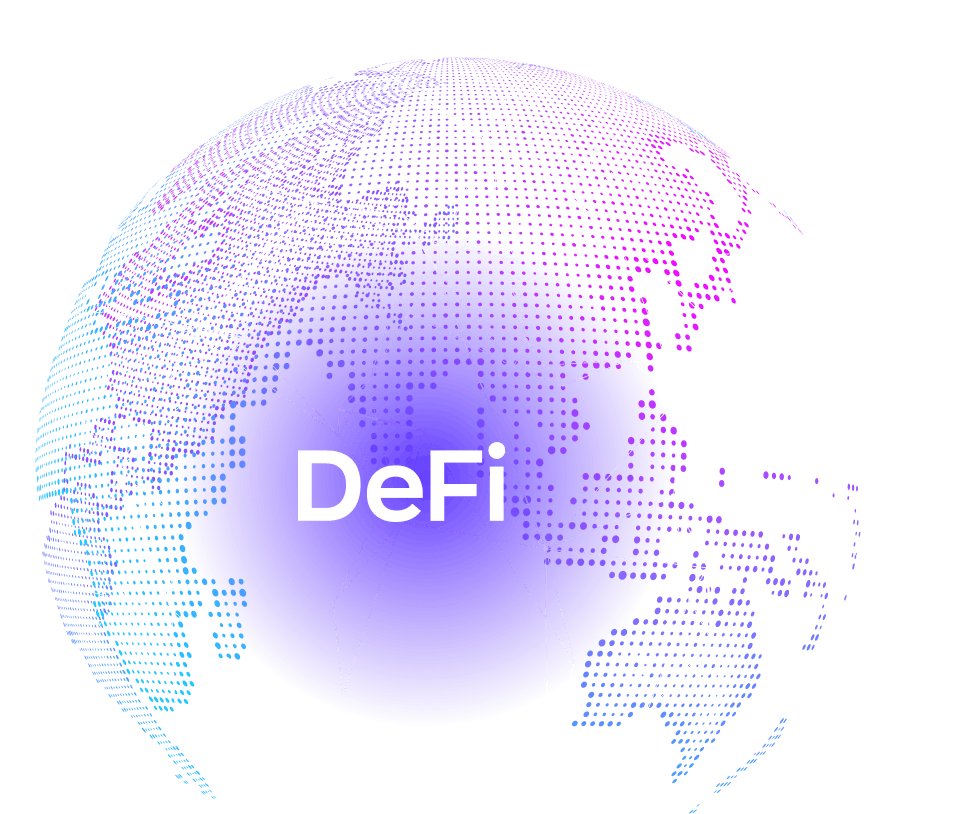NFT & DEFI accounting
NFT & DeFi services

JUST A FEW OF THE COMPANIES WE’VE SUPPORTED OVER THE YEARS
DeFi accounting can be complex…
At OnChain Accounting, we provide specialized DeFi accounting services to help businesses navigate the complexities of blockchain transactions and stay compliant with tax and regulatory requirements. With our expertise in DeFi accounting services, we help businesses track and record their DeFi transactions accurately, including yield farming, liquidity providing, staking, impermanent loss calculations, and yield auditing.
Our team of experts has years of experience working with blockchain technology and DeFi accounting, making us a reliable partner for businesses looking to stay ahead in the world of blockchain and cryptocurrency.


How is Traditional Finance (TradFi) transitioning towards decentralized finance?
TradFi refers to the traditional financial system, which is based on centralized institutions such as banks, brokerages, and other financial intermediaries. In TradFi, financial transactions are conducted through these centralized institutions, which act as gatekeepers and middlemen. TradFi typically involves fiat currency, which is government-issued currency that is not backed by a commodity such as gold.

How is DeFi different than TradFi?
Centralization vs. decentralization
TradFi is based on centralized institutions that act as intermediaries, while DeFi operates in a decentralized, peer-to-peer manner.
Fiat currency vs. cryptocurrency
TradFi involves fiat currency, while DeFi involves cryptocurrency.
Transparency vs. opacity
TradFi is often opaque, with limited transparency into financial transactions and activities, while DeFi operates in a transparent and open manner.
Accessibility
TradFi often has high barriers to entry, with limited access to financial services for underserved communities. DeFi, on the other hand, offers greater accessibility and inclusivity, allowing anyone with an internet connection to access financial services.
Efficiency
Without needing a trusted intermediary, DeFi financial services can operate at a lower cost and faster rate to the customer.
Security
TradFi relies on centralized institutions to secure financial transactions, while DeFi uses blockchain technology and smart contracts to secure transactions in a decentralized manner.
Get in touch with us
Invest today and optimize your tax records with crypto tax professionals

NFT accounting
NFTs (Non-Fungible Tokens) are another exciting development in the cryptocurrency world, providing a way to represent unique digital assets, such as art, music, and collectibles, on the blockchain. However, with their complex ownership and transactional structures, NFTs present unique accounting challenges. At OnChain Accounting, we specialize in providing NFT accounting services to Web3 companies and startups, helping them manage their NFT transactions and DeFi bank accounts, including NFT tax reporting and NFT compliance.

Our team of experts has years of experience working on accounting for cryptocurrencies and blockchain technology, and we understand the unique challenges of NFT transactions, including NFT mints, NFT purchase and sale tracking, NFT tax reporting and compliance, DeFi bank account monitoring and NFT investment analysis. With our comprehensive NFT accounting services, we can help your Web3 company or startup navigate the complexities of the NFT world and ensure that your financial records of assets and DeFi bank accounts are accurate and up-to-date. We understand the unique challenges of NFT transactions and can provide you with the expertise you need to stay compliant and make informed investment decisions.

Why is NFT technology revolutionary?
Other services
Book your appointments
Let OCA make your accounting a breeze
FAQs
Your questions, answered
How can DeFi accounting services benefit my crypto business?
In the rapidly evolving world of decentralized finance, having specialized DeFi accounting services is crucial. At OCA, we navigate the complexities of DeFi transactions, from yield farming to liquidity providing, ensuring your financial records are accurate and compliant with tax and regulatory requirements. Our expertise in blockchain accounting and crypto tax accounting ensures that your business remains at the forefront of financial transparency and compliance in the DeFi space.
What challenges does NFT accounting present, and how do you address them?
NFTs, with their unique ownership and transactional structures, bring about distinct accounting challenges. Our team at OCA specializes in NFT accounting, managing everything from NFT mints to sales tracking. We ensure accurate NFT tax reporting and compliance, helping businesses navigate the intricacies of the NFT world. With our deep understanding of crypto accounting, we're equipped to handle the nuances of NFT transactions, providing clarity and precision.
How does OCA ensure accurate tracking of DeFi transactions?
With our profound expertise in DeFi accounting, we employ advanced tools and methodologies to accurately track and record DeFi transactions, including impermanent loss calculations and yield auditing. Our team stays updated with the latest trends in blockchain accounting, ensuring that every DeFi transaction, be it staking or liquidity providing, is accounted for with utmost precision.
Can OCA assist with the financial complexities arising from yield farming and liquidity providing?
Absolutely! Yield farming and liquidity providing are integral components of the DeFi landscape, and we're well-versed in handling the financial intricacies they present. Our DeFi accounting services encompass all aspects of these activities, ensuring that your financial records reflect accurate data, aiding in informed decision-making.
How does Traditional Finance (TradFi) differ from Decentralized Finance in terms of accounting needs?
Traditional Finance operates through centralized institutions, whereas DeFi operates in a decentralized, peer-to-peer manner. This decentralization brings about unique accounting challenges. At OCA, we bridge this gap with our specialized DeFi accounting services, ensuring that businesses can seamlessly transition and adapt to the decentralized financial ecosystem while staying compliant.
Why is it essential to have specialized accounting services for DeFi bank accounts and transactions?
DeFi bank accounts and transactions operate on decentralized platforms, making their tracking and recording distinct from traditional financial systems. Our team at OCA, with its expertise in crypto accounting and blockchain accounting, ensures that your DeFi bank accounts and transactions are managed with precision, ensuring compliance and financial transparency.
How can OCA help businesses navigate the regulatory landscape of DeFi and NFTs?
The regulatory environment for DeFi and NFTs is continually evolving. Our team stays abreast of the latest regulatory changes and standards, ensuring that your business remains compliant. With our expertise in crypto tax accounting and blockchain accounting, we provide guidance and support, ensuring that your financial operations align with current regulations.
Why should I consider OCA for my DeFi and NFT accounting needs?
At OCA, we bring a wealth of expertise in DeFi and NFT accounting. Our team, comprising crypto CPAs and specialists, navigates the complexities of the digital asset industry, from yield auditing to NFT tax reporting. Whether you're delving into liquidity providing or managing NFT transactions, our comprehensive services ensure that your financial records are accurate, compliant, and up-to-date.
© 2025 Onchain. All rights reserved.
Disclaimer: The logos on this website are copyrighted and registered trademarks of their respective owners. They are used for demonstration purposes only and do not imply endorsement.
Design and Development by AT Digital












